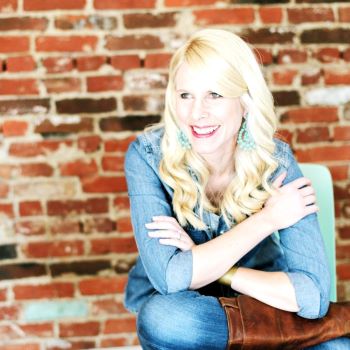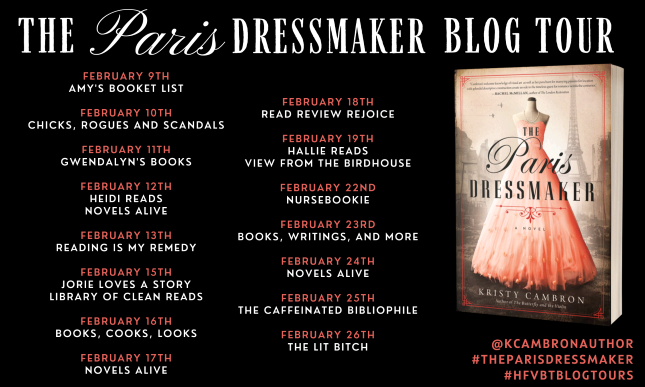Publisher : Tangible Group (February 1, 2021)
Publication date : February 1, 2021
Language : English
Are you a sudden caregiver? When an unforeseen medical crisis robs someone you love of their health and wellbeing, do you feel caught off guard and ill-prepared for your caregiving role?
Plenty of research confirms what you may already know: caregiving is depleting, worrying, and exhausting, often leading to physical and emotional burnout, fear, and illness.
Yet a growing body of evidence tells us that while caregiving is depleting, it can also be a source of strength, well-being, and purpose.
Caregiving may be inevitable, but caregiver distress is not.
Written by a family caregiver for family caregivers, The Sudden Caregiver: A Roadmap for Resilient Caregiving, will help you to:
Take control of the practical tasks and available resources your circumstances require.
Minimize unpleasant surprises and maximize well-being for you and the person in your care.
Leverage “resilience builders” to protect yourself against stress and replenish your spirit.
“Beautifully written and empirically sound. I can see that it will help many caregivers of all types. I look forward to sharing it with my caregiver networks."
– Dr. Judith Moskowitz, PhD, MPH, Professor, Medical Social Sciences, Northwestern University - Feinberg School of Medicine and President of the International Positive Psychology Association
PLEASE ENJOY AN EXCERPT FROM THE BOOK:
Introducing the Sudden Caregiver
“There are only four kinds of people in the world – those who
have been caregivers, those who are
caregivers, those who will be caregivers,
and those who will need caregivers.” — Former US First Lady, Rosalynn Carter, from Written Testimony Before the Senate Special Committee on Aging1
This is the moment. I wake up in the
middle of the night to the ringing of my mobile in the dark. The standard-issue
hotel bedside clock reads 2:04 a.m. I answer the phone with a startled, heart
racing, “Sweetie!” In the two decades we’ve been together, Joel has never called me in the middle of the night
when either of us is on the road. He
says, “I’m still at the hospital. They just came in and told me. I have lung cancer. But it’s in
my spine.” I sit up in bed trying to get
my bearings. I have fallen asleep fully clothed, it seems, propped against the headboard, waiting
to hear from Joel who was in the ER when
we last spoke. I was certain that he would
have made it home by now, safely diagnosed with a curative regimen in
hand.
My laptop, open beside me on the bed,
holds an email to my clients telling
them I may have to postpone the
meetings we have scheduled for later in
the week, something I have never had to do in
all the years of running my own firm. I have composed the note with much
hesitation while waiting for Joel to call. I’d fallen asleep before hitting send.
Over the phone, Joel makes a joke or
two about lung cancer, complete with pop-culture references to the TV show Breaking Bad, which we’ve just binge-watched on Netflix. The
running theme of that show is that a
mild-mannered chemistry teacher, Walter White, is told he has terminal lung cancer. In the aftermath of
this diagnosis, Walter White stumbles upon formulating and selling
methamphetamine to ensure his family’s financial future. We both laugh.
Today, with the arc of his diagnosis
to death completed, I recall that I took in and focused on his joking banter
more than the part about lung cancer. It seemed so unlikely a diagnosis for my
non-smoking, religiously exercising, insistently supplement-taking husband. I
was almost dismissive of it. “That’s not possible,” I remember saying. I know I
sounded sure. I was sure. This was
some kind of false alarm, and I was so
certain of it that I persisted in wondering about whether I really had to cancel my upcoming meetings. Lung cancer
sounded serious but was it an immediate kind of serious? What about the
twenty-six people who’d traveled from all over the country to assemble in a
workshop I had committed to running that week?
The
“C” Card
Murmuring with Joel
about it deep into that night, I now realize I was plucking “lung cancer” from
the air and turning it into an action item, mentally rank ordering it on my
list of priorities in order to minimize it. Did it go at the top: drop all and grab
a plane? Or in the middle: finish what you came for then hightail it home? Or
perhaps, after all, this belonged at the bottom: we’ve all had bad news, even
scary medical news. But it’s never really
bad.
I wandered in and out of
sleeplessness weighing my options and then took the first flight home to
Boston. I left messages for colleagues during the cab ride and from my seat on
the plane, begging someone to cover the meeting that I had to cancel. I reached
one colleague at that early hour. I
heard myself pleading with her when she said she did have that day free but would rather not book it.
“But Joel has cancer,” I whispered to her, my face pressed against the plane’s
window so that the stranger who was my seatmate would not hear my desperate whine. That was,
officially, the first time I told anyone that Joel had cancer. It felt false, a
manipulation, “playing the ‘C’ card,” as
they say. Yet in the next moment the power of its reality overcame me. To my
astonishment, I began to cry. Whatever my colleague made of all this, in any
case, she didn’t find a way to say yes. This is the moment, the first of many
moments, when I knew that life wasn’t going to yield to my well-crafted plans.
Welcome to the other side of the looking
glass, the province of the sudden caregiver.
On the day before I became a sudden
caregiver, I was, first, a mom planning her only daughter’s wedding. I was a
consultant designing a leadership program. I was a coach listening for what her
client wasn’t saying. And I was a
runner, a friend, a business owner, and a consumer of too much Starbucks
coffee. I was also a wife checking in with her husband from some six hundred
miles away. His ongoing complaints of back pain were steeped now in
frustration, which I shared. It sounded to me like the pain was shifting,
radiating, deepening. So I was also,
that day, a stern lecturer on the virtues of taking care of oneself, demanding
he call our friend, Glenn, to take him to the emergency room so they could fix
whatever was wrong once and for all, if it couldn’t wait till I got home.
I inhabited all my usual roles that
day. Caregiver was not among them. Then,
suddenly, it was.
AUTHOR SPOTLIGHT
AUTHOR Q AND A
- What is
your education/career background?
I was naturally
oriented toward the humanities: English, literature, languages, art. I got my
Bachelor’s degree in English from Rutgers University -- in the first graduating
class that included women. I’m a first-generation college grad and the only one
in my immediate family to finish college. To put myself through school, as
there was no money for college, I worked nights on the college paper, The Daily
Targum, which was ahead of its time in that it had begun to install
computerized typesetting equipment (the personal computer and Apple Mac were
still in the future) and needed a production staff to run it. I needed the
money, so I learned to proofread, edit, typeset, and lay out the paper, all skills
that got me my first job.
I was hired as a
technical editor at a New Jersey office of Boston-based Raytheon, right out of
school. For reasons I can never fathom, my Raytheon bosses agreed to relocate
me from South Jersey to Boston when our contract ended, where I became a
technical writer, and was, therefore, making my living at writing. Something
about my approach to writing – writing for the person who would read and use
the tech doc rather than the engineer who designed the software -- landed me in
marketing at the start of the software wave in Boston. I spent most of my
corporate career in high tech marketing, culminating in being a VP of Marketing
for a venture capital firm in Boston.
That’s where I was
working on 9/11. It’s another long story, but I was out of the country on 9/11
and the US airspace was closed. I thought, “If this is the end of the world,
this is not the job I want to be doing.” I quit shortly after, enrolled in the
best coaching program in the country, got certified, started my company,
Tangible Group, in 2002, and I’ve been an executive coach ever since. I’ve
never looked back.
One day, somewhere
along the way, I read a book by a man named Martin Seligman called Learned
Optimism. At that time, I was a struggling single mom with a high-pressure
job and no money. That book completely changed my lens on life. When I learned
that Seligman had started a graduate program at the University of Pennsylvania,
I got accepted and in 2013, I received my Master’s degree in Applied Positive
Psychology (MAPP). Little did I know that within a year of receiving my degree,
I would be called upon to apply the tenets of positive psychology in my own
world, when my husband was diagnosed out of the blue with stage IV cancer and I
became his sudden caregiver.
2. What
inspired your story?
My own lived experience as a caregiver. I kept a
daily journal from the time of my husband’s diagnosis well beyond the
first year after his death. I was and am inspired to help other
caregivers, everywhere. There are 45 million in the US alone. How can I
hold a light up for them on the path that I just traveled?
Social media:
https://www.thesuddencaregiver.com/
https://www.TangibleGroup.com/
https://www.facebook.com/suddencaregiver
https://www.linkedin.com/in/karenwarnertangible/
#suddencaregiver
Buy links:
Amazon:
https://www.amazon.com/Sudden-Caregiver-Roadmap-Resilient-Caregiving-ebook/dp/B08VQSP3XL/ref=sr_1_1?crid=314XSADQKNDRK&dchild=1&keywords=the+sudden+caregiver+a+roadmap+for+resilient+caregiving&qid=1612926292&sprefix=the+sudden+caregiver%3A+a+r%2Caps%2C812&sr=8-1































